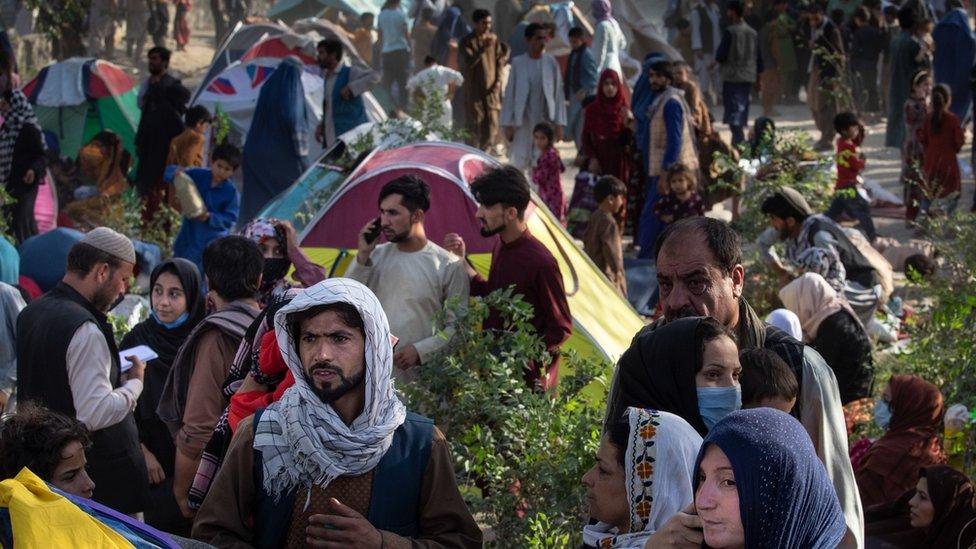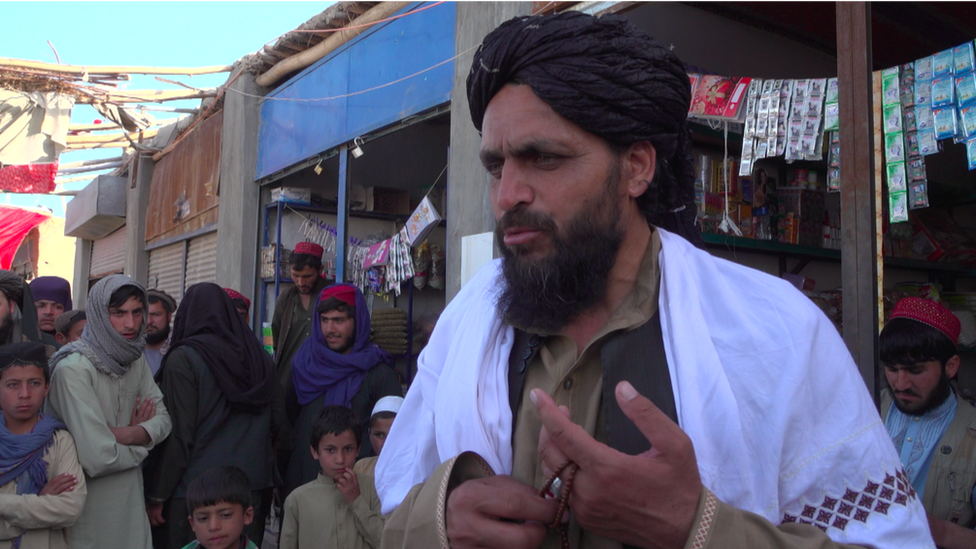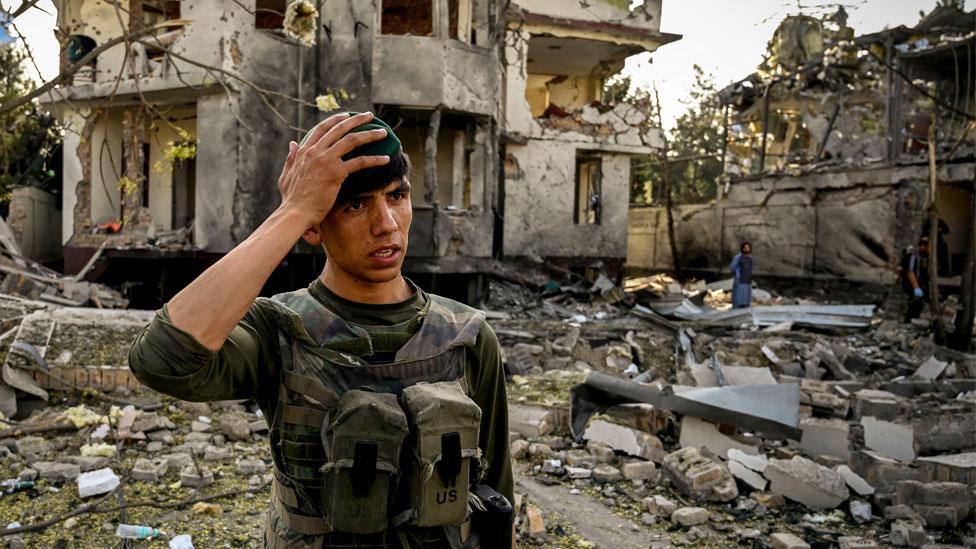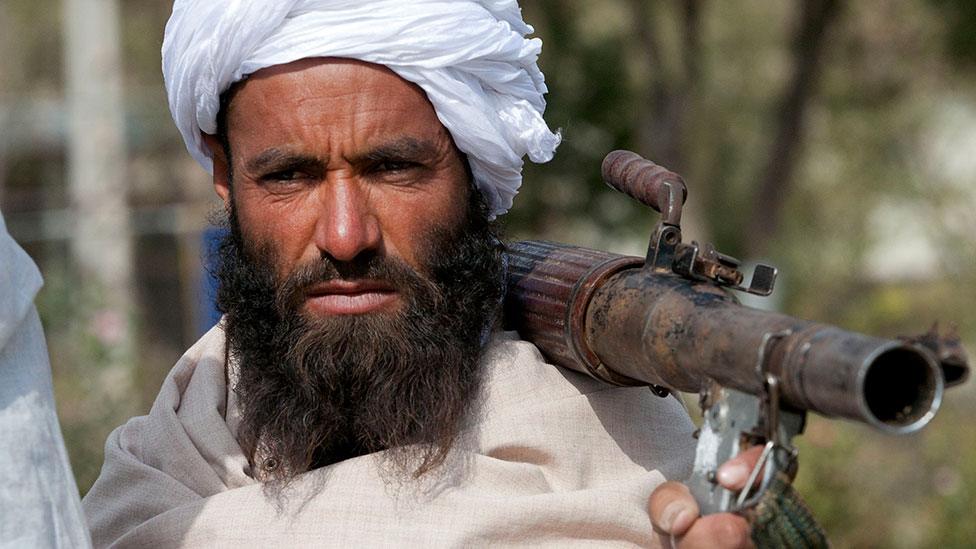Afghanistan war: Biden says he does not regret troop withdrawal
- Published

People have been sleeping in makeshift camps in Kabul after fleeing their homes
US President Joe Biden has said he does not regret his move to withdraw troops from Afghanistan, as Taliban militants continue to make rapid advances.
Mr Biden urged Afghanistan's leaders to unite and "fight for their nation".
A US-led military campaign began in 2001 following the 9/11 attacks on American soil - but now most of the foreign troops have pulled out.
The Taliban group has now seized nine of the country's 34 provincial capitals, and are threatening more.
Speaking to reporters at the White House on Tuesday, Mr Biden said the US was keeping the commitments it had made to Afghanistan, such as providing close air support, paying military salaries and supplying Afghan forces with food and equipment.
But he said: "They've got to fight for themselves."
The Washington Post cited unnamed officials as saying the capital Kabul could fall to the Taliban within 90 days, external, based on US military assessments.
More than 1,000 civilians have been killed amid fierce fighting between the Taliban and government forces in the past month, according to the UN. Its children's agency Unicef warned this week that atrocities being committed against children were growing "higher by the day".
In their latest major advances, Taliban militants seized three more provincial capitals in 24 hours - Faizabad, Farah and Pul-e-Khumri.
Officials said that on Tuesday the insurgents had raised their flag in the main square and on the governor's office in Pul-e-Khumri, the capital of Baghlan province, which is located about 200km (125 miles) from Kabul.
A local journalist and provincial council member told the BBC that the western city of Farah had fallen.
And on Wednesday, the Taliban claimed to have taken Faizabad in the north-west of the country.
Other gains by the militant group this week include the key northern city of Kunduz. It is considered a gateway to mineral-rich provinces and is in a strategically important location close to the border with Tajikistan, which is used for the smuggling of opium and heroin.
Heavy fighting is continuing in other parts of the country, and US and Afghan planes have been carrying out airstrikes.
On Wednesday Afghanistan's President Ashraf Ghani flew to Mazar-i-Sharif in an apparent drive to rally the defenders in the key northern city which is now threatened by the militants.
EXPLAINER: Why is there a war in Afghanistan?
PROFILE: Who are the Taliban?
Thousands of people have been fleeing their homes in recent days.
"We saw bodies lying near the prison... there were dogs next to them," one woman who left Kunduz as the Taliban took control told AFP news agency.
Residents still in the city said shops had begun to reopen as Taliban militants focused their attention on government forces who had retreated to the airport.
"People are opening their shops and businesses, but you can still see fear in their eyes," one said.
The Taliban have rejected international calls for a ceasefire.
UK Chief of the Defence Staff Gen Sir Nick Carter told the BBC that if the Afghan state fractured, the "ideal conditions" could emerge for international terrorism and violent extremism.
Gen Sir Nick Carter: A security vacuum could lead to international terrorism
- Published15 April 2021

- Published30 August 2021

- Published16 August 2021
